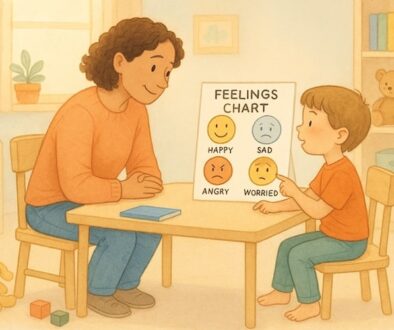How To Maintain Healthy Family Relationships During Retirement?
Retirement, often viewed as the golden phase of life, is characterized by leisure, relaxation, and tranquility after years of tireless work. While this phase offers plenty of time to cultivate hobbies and chase passions, it also brings with it a shift in family dynamics. This shift can sometimes be challenging. That being said, with the right approach, retirement can also present a unique opportunity to strengthen family ties and deepen connections.
Understanding the Shift
With retirement, the pace of life slows down, and the regular hustle-bustle of work-life dissipates. This brings with it more opportunities to interact with family, creating a chance for relationships to grow. However, this change can also invite unexpected friction if not handled delicately.
Coping with the shift in lifestyle, dealing with age-related issues, and grappling with the changing dynamics in the family due to the influx of time can become sources of stress. Thus, it becomes crucial to understand how to maintain healthy relationships during this stage of life.
Open Communication
Open and honest communication is the cornerstone of any strong relationship, and family relationships during retirement are no exception. Regular discussions about each other’s lives, sharing of feelings and experiences, can bring the family closer. It’s important to listen actively and offer constructive advice when needed, but also respect the other’s space and independence.
Shared Activities
Spending quality time together by engaging in shared activities is an effective way to foster stronger bonds. Activities such as cooking, gardening, painting, playing games, or even traveling together can be excellent ways to strengthen family ties. Remember, it’s not about the activity itself but the shared experience and the memories created.
Empathy and Patience
Empathy and patience go a long way in maintaining a healthy family relationship during retirement. Understanding that everyone is dealing with their own challenges and pressures can help cultivate patience. Empathy allows us to understand the perspectives of others better, and this understanding can lead to stronger, more harmonious relationships.
Maintaining Personal Space
While family time is crucial, maintaining personal space and respecting others’ is equally important. Everyone needs time and space to pursue their own interests or simply to unwind. This balance between togetherness and individuality can ensure a peaceful and healthy family environment.
Retirement and Living Arrangements

One of the most significant and often complex decisions during retirement is about living arrangements. As retirees transition into this new stage of life, their needs can significantly change, especially those related to health and social engagement. The primary options families often consider are assisted living and home care. The decision between assisted living vs home care can often be perplexing, so it’s imperative to thoroughly understand both these living arrangements in detail. Let’s delve into each and then determine the most suitable option.
Assisted Living
Assisted living facilities provide a supportive living option for seniors who can live independently but need some assistance. They offer a combination of housing, healthcare, and personalized support services. They are designed to meet the individual needs of those who require help with everyday activities, like taking medication, bathing, dressing, meals, and transportation.
The greatest strength of assisted living is the blend of independence and care it offers. Residents have their own private space, often a room or a small apartment, and are encouraged to engage in social activities with other residents. This can be a crucial aspect for retirees, as social engagement is known to promote mental well-being.
Also, as assisted living facilities have trained healthcare professionals on staff, they can provide a level of medical support that can’t usually be matched at home. This support includes regular health monitoring, medication management, emergency care, and in some cases, even specialized care for conditions like dementia.
However, a move to an assisted living facility can mean leaving the familiarity and comfort of the family home, which can be emotionally challenging for many retirees. The cost is another significant factor, as assisted living can be quite expensive, depending on the services offered and the geographical location.
Therefore, it’s essential to involve the entire family in this decision. The retiree’s feelings and wishes need to be a priority. Financial aspects, proximity to the family home, available services, and the atmosphere of the facility should all be taken into consideration before making a decision.
Home Care
Home care represents an entirely different approach to retirement living. It allows retirees to receive care and assistance while staying within the comfort of their homes. This type of care can range from part-time help for daily tasks to full-time medical care, depending on the retiree’s needs.
The most significant advantage of home care is the ability to maintain a sense of familiarity and comfort. Many seniors feel more satisfied staying close to their family and friends and in the environment they love. Home care also offers more flexibility than assisted living, as care schedules can be customized to the retiree’s needs and preferences.
However, home care does come with challenges. For one, it may place a significant caregiving burden on family members. While home care services can help alleviate this burden, coordinating and managing these services can still be a complex task. Additionally, providing a safe and suitable environment at home for seniors, especially those with significant health issues, can require considerable modifications to the house, which can be costly.
The choice between home care and assisted living should be a careful decision made by the retiree and their family. It requires considering various factors such as the retiree’s physical and mental health status, their personal preferences, the family’s capacity to provide care, and of course, financial resources. Both options have their own strengths and challenges, and the best choice will depend on the unique circumstances of each retiree and their family.
Conclusion
Retirement marks a significant shift in an individual’s life, bringing a host of changes in daily routines, responsibilities, and family dynamics. Maintaining healthy family relationships during retirement requires a delicate balance of open communication, shared activities, empathy, patience, respect for personal space, and careful decision-making about living arrangements.
Whether the choice is assisted living or home care, the retiree’s comfort, happiness, and health should always be at the forefront. After all, retirement is a well-earned period of relaxation and enjoyment, and every effort should be made to ensure it’s spent in an environment of love, care, and mutual respect.
Remember, every family is unique, and there is no one-size-fits-all solution. Therefore, being patient, open-minded, and supportive will go a long way in maintaining healthy family relationships during this new chapter of life.



